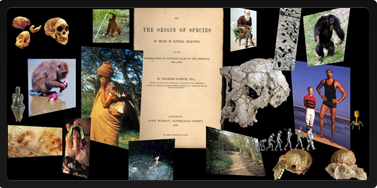EVOLUTIONARY ANTHROPOLOGY

Studying our behavior has been the purview of countless scholars, scientists (both social and biological), theologians, philosophers, and most of all other people. Every day we engage in our own study of human behavior that informs our actions and attitudes. In one sense, we are all anthropologists observing other people and trying to understand why they do what they do. In many cases, we find the behavior of others troubling for ethical or personal reasons. Nonetheless, the hallmark of anthropology is being as judgment-free as possible in our explanations.
This does not mean that anthropologists lack biases. Of course, we have more than our fair share. We are human. While we may find tribal warfare, child abuse, drug use, and terrorism repugnant, it is our responsibility to try to understand why they occur. In the end, it is only through an understanding of human behavior that we can hope to change those aspects of the human condition we find unacceptable.
Evolution is way to interpret what goes on around us. Evolution gives us a way to explain why spiders build intricate webs only to eat them before dark and spin new ones the following day. Evolution provides an understanding of the spread of life-threatening infectious diseases, as well as the consequences of poverty on our health and well-being. Evolution is not a theory, it is a fact, and as such provides the most powerful tool to explain what goes on around us. We are subject to the same evolutionary forces as all other animals; however, we have evolved the ability to ameliorate the intensity of natural selection. Yes, natural selection still works in modern human populations, but we have diminished the negative consequences in some cases.
